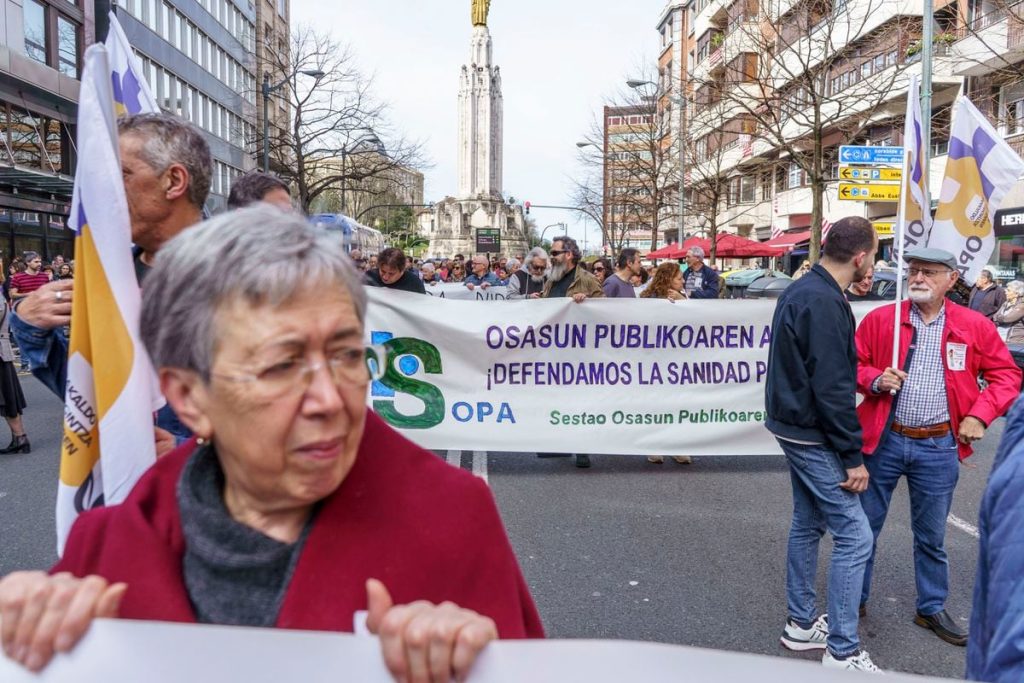Mario Onaindia, an intellectual and leader of the PSE-EE, predicted in his Guide to navigate the Basque labyrinth, before his death twenty years ago, that a normalized Euskadi with the incorporation of the abertzale left into institutions would be more nationalist and leftist. This prediction reaches its peak in these Basque elections, with the first notable aspect being the power struggle between PNV and EH-Bildu, accompanied by a generational renewal. The second aspect is the focus on socio-economic issues in the debate, as opposed to identity issues from the past, exacerbated by low levels of support for independence. The third aspect is the potential role of a non-nationalist party, PSE-EE, in determining governability.
Gone are the days of Basque regional elections marked by terrorism and territorial confrontation. Euskadi is now experiencing a level of normality unknown for decades, contrasting with the tense national debate – featuring corruption and amnesty – which, if exacerbated, would benefit Basque nationalist options even more, especially in the regional elections. This new reality sets the stage for a different political landscape in the Basque Country.
These elections reveal a significant shift in Basque politics, with a new generation entering the scene with different priorities leading to the decline of PNV and the rise of EH-Bildu. Despite historical successes in the immediate post-terrorism period, PNV is facing challenges due to decades in power and doubts regarding its ability to address future uncertainties, heightened by the pandemic. The crisis in the Basque public health system symbolizes this decline. However, there is a sizable group of undecided voters, potentially mitigating this decline.
A key player in this scenario is the PSE-EE, as the possible kingmaker, ensuring government stability if it joins with PNV to form a majority. They aim to maintain a plurality accepted by Basque society and have expressed the desire for EH-Bildu to remain in opposition until Sortu, its core, acknowledges the gravity of its past complicity with ETA terrorism. Both PSE-EE and PNV support EH-Bildu’s full parliamentary participation but argue that Sortu must address its past in order to lead the country effectively.
The emerging force, EH-Bildu, has adapted to the new political landscape and capitalized on the support of young voters and some middle-class sectors who have embraced its evolution. EH-Bildu’s absorption of Podemos’ vote and its solid territorial presence have strengthened its position in the Basque political spectrum, catering to the nationalist left. An evolution towards institutionalization and collaboration with the government in times of crisis has helped EH-Bildu gain recognition and support.
EH-Bildu’s journey towards recognition and acceptance in a post-ETA Basque society contrasts with the radicalized policies of the PP, which aligning with Vox, have alienated large sectors of Basque society. While PSE-EE and PNV call for EH-Bildu to complete its positive evolution with a self-critique, the PP continues to associate EH-Bildu with ETA, a stance that marginalizes them in a society that has moved beyond such divisive rhetoric. The PP’s approach risks further electoral setbacks in a region that supports amnesty and rejects overacting, as indicated by polls. As EH-Bildu addresses its past, the PP, alongside Vox, must also acknowledge its debts to victims of Francoism to remain relevant in Basque politics.


